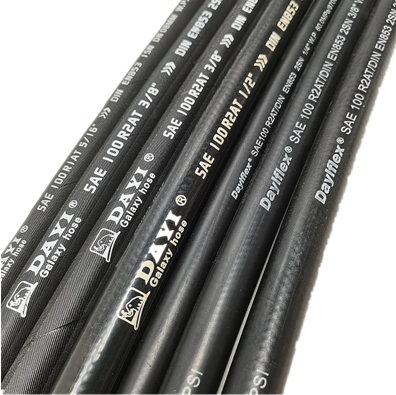335345435
dec . 18, 2024 18:51 Back to list
is vinyl tubing gasoline resistant
Is Vinyl Tubing Gasoline Resistant?
Vinyl tubing, also known as PVC (polyvinyl chloride) tubing, has gained popularity in various applications, ranging from plumbing to automotive tasks. However, many users wonder whether vinyl tubing is suitable for use with gasoline and other petroleum products. This article will explore the chemical properties of vinyl tubing, its resistance to gasoline, and guidance on selecting the appropriate materials for gasoline handling.
Understanding Vinyl Tubing
Vinyl tubing is made from a type of plastic called polyvinyl chloride (PVC). It is known for its flexibility, durability, and resistance to weathering, making it a common choice for numerous industrial and DIY applications. Vinyl tubing is often chosen for its affordability and ease of use, but its material properties can vary significantly depending on its formulation and thickness.
Chemical Resistance of Vinyl Tubing
When assessing whether a material is suitable for carrying gasoline, it is essential to consider its chemical resistance. Gasoline is a complex mixture of hydrocarbons and other organic compounds that can exert strong effects on materials exposed to it.
PVC exhibits certain levels of resistance to a variety of chemicals; however, it is not universally resistant to all types of fuels. The primary concern with using vinyl tubing for gasoline transfer is its permeability. While vinyl tubing may initially withstand exposure to gasoline, over time, gasoline can permeate through the material, leading to degradation, reduced structural integrity, and potential leaks.
Factors Affecting Vinyl Tubing Performance with Gasoline
1. Thickness and Reinforcement Thicker and reinforced vinyl tubing might offer better resistance compared to standard tubing. However, even high-quality vinyl tubing has limitations when it comes to prolonged exposure to gasoline.
2. Temperature The temperature at which vinyl tubing operates can significantly affect its performance. High temperatures can cause the material to soften, making it more susceptible to deformation and failure when in contact with gasoline.
3. Concentration of Additives Gasoline often contains various additives aimed at improving performance or protecting the engine. Some of these additives may react differently with PVC, further complicating the issue of compatibility.
is vinyl tubing gasoline resistant

Alternatives to Vinyl Tubing
For those requiring tubing for gasoline transfer, alternative materials are often recommended. These include
1. Rubber Tubing Certain synthetic rubbers, such as nitrile rubber, provide excellent resistance to petroleum products. They are often used in automotive applications, including fuel lines.
2. Polyethylene Tubing High-density polyethylene (HDPE) is another alternative known for its chemical resistance, including to gasoline, making it a suitable choice for fuel transfer.
3. Teflon (PTFE) Tubing Teflon is known for its extraordinary chemical resistance and is often used in industrial applications involving corrosive substances, including gasoline.
4. Metallic Tubing In scenarios where high pressure or durability is needed, metallic tubing made from aluminum or stainless steel can be the safest choice for gasoline handling.
Conclusion
While vinyl tubing is a versatile material suitable for many applications, it is not generally recommended for transferring gasoline or other petroleum-based products. Its susceptibility to degradation, permeability, and chemical interactions with gasoline may compromise safety and efficiency.
When handling gasoline, it is crucial to choose materials specifically designed for fuel resistance, such as nitrile rubber, polyethylene, or Teflon. These alternatives provide the necessary durability and safety for transporting gasoline, ensuring that your projects can be completed without risk. Always prioritize safety when selecting materials for projects involving flammable substances, and consult manufacturer guidelines or professional resources when in doubt.
-
Discount Hydraulic Hose Factories – Bulk Supply & Quality Assurance
NewsJul.30,2025
-
Hydraulic Hose Crimping Machine for Precise & Durable Connections
NewsJul.29,2025
-
High Pressure 4SH Hydraulic Hose for Heavy Duty Applications
NewsJul.29,2025
-
Hydraulic Hose Wholesale – Custom Pressure Hoses & Fast Supply
NewsJul.29,2025
-
High-Quality Distribution PTFE Hose for Industrial Applications
NewsJul.28,2025
-
High-Performance Distribution PTFE Hose for Flexible Industrial Solutions
NewsJul.28,2025



